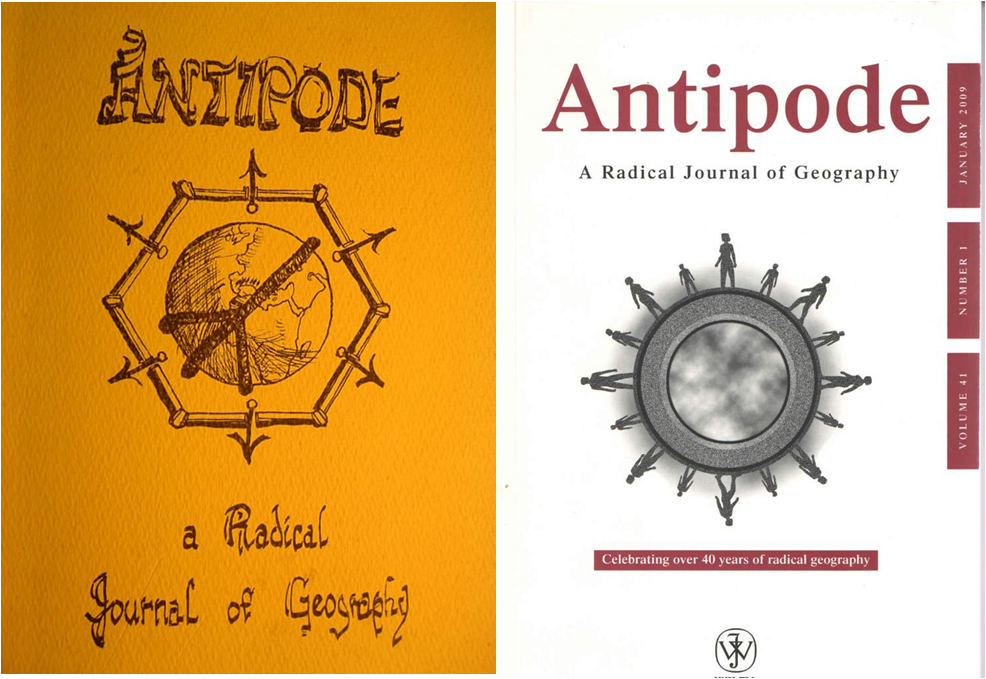The Foundation’s trustees held their AGM at the end of last month, and on the agenda were the Scholar-Activist Project and International Workshop Awards. This year we received 111 applications for S-APAs and 55 for IWAs, and the high standard made decision making no mean feat. The trustees scored the proposals and created a shortlist that was subject to much debate; we’re delighted to announce that we’ll be making four S-APAs and six IWAs this year (the grants will amount to almost GB£90,000). We’ll introduce the latter very soon, and today can reveal the former. First though we’d like to thank, again, all the applicants; it was a pleasure to read the applications and see the diversity and vitality of contemporary critical geography.
Scholar-Activist Project Awards are intended to support collaborations between academics, non-academics and activists (from NGOs, think tanks, social movements, or community grassroots organisations, among other places) that further radical analyses of geographical issues and engender the development of a new and better society. They are aimed at promoting programmes of action-research, participation and engagement, cooperation and co-enquiry, and more publicly-focused forms of geographical investigation. We want to fund work that leads to the exchange of ideas across and beyond the borders of the academy, and builds meaningful relationships and productive partnerships.
Projects could take many forms including, but not limited to: collaborative research with artistic, community, cultural, grassroots, or social movement groups; the production of educational materials and other innovative pedagogical initiatives; and the promotion of links between universities and institutions/organisations outside the academy. We envisage projects being eclectic in nature and focus – they might involve small or large groups of people, and they may have a focus on a range of scales from the local right up to the global, for example – but they will be designed to foster new thinking or doing, and different mixtures of the two. We encourage initiatives that are adventurous, that explore and go beyond the boundaries of established academic practice. We’d like to see work that is innovative and original, but more than that, we want to fund work that is significant: we want to support activities that have implications for praxis, to better understand contemporary political concerns and develop alternatives.
This year’s Awards are going to support the work of both geographers and their fellow travellers, scholars both eminent and emerging, and activists from Europe, South and East Asia, and Latin America. We’ve a project making connections among anti-gentrification campaigners, creating a durable, national struggle by constructing knowledge in place and sharing it across space; we’ve one putting the traditions of the Geographical Expeditions and Institutes to work to train community organisers working towards alliance building and the production of participatory research; another will develop a radical atlas of ‘presence and resistance’ in a landscape changing under the influence of resource extraction, through enabling groups to come together, share experiences, and co-constitute strategies; and, finally, we’ve a project developing resources to deal with migrant labour exploitation by sharing knowledge of injustices and the struggle against them among communities in a number of countries. We’ll have more from the awardees in the coming weeks and months as the projects unfold.
Scholar-Activist Project Awards 2014
Scaling up urban resistance to the new gentrification frontier: Creating a national campaign network to defend traditional retail markets
Sara Gonzalez (University of Leeds, UK), Friends of Leeds Kirkgate Market, Friends of Queens Market and Wards Corner Community Coalition
E14 London Geographical Expedition and Institute
Liam Harney (Queen Mary, University of London, UK) and Sotez Chowdhury (Citizens UK)
Radical cartographies: Mapping resistance and presence to decolonize the Wayuu, Añu and Bari peoples territory
Pablo Mansilla (Universidad Academia de Humanismo Cristiano, Chile), Jose Quintero Weyr (Universidad del Zulia, Venezuela), Silverio Lopez (Universidad del Zulia, Venezuela) and Alexander Mercario (Universidad del Zulia, Venezuela)
Precarious workmen speaking out: South Asian migrant workmen’s diaries and narratives as safe migration resources
Sallie Yea (Nanyang Technological University, Singapore), Debbie Fordyce (Transient Workers Count Too/TWC2, Singapore) and AKM Mohsin (Bangla Kathar Bengali newspaper / Dibashram space for migrant workers, Singapore)
To learn more about the work of the Antipode Foundation, click here.

Comments